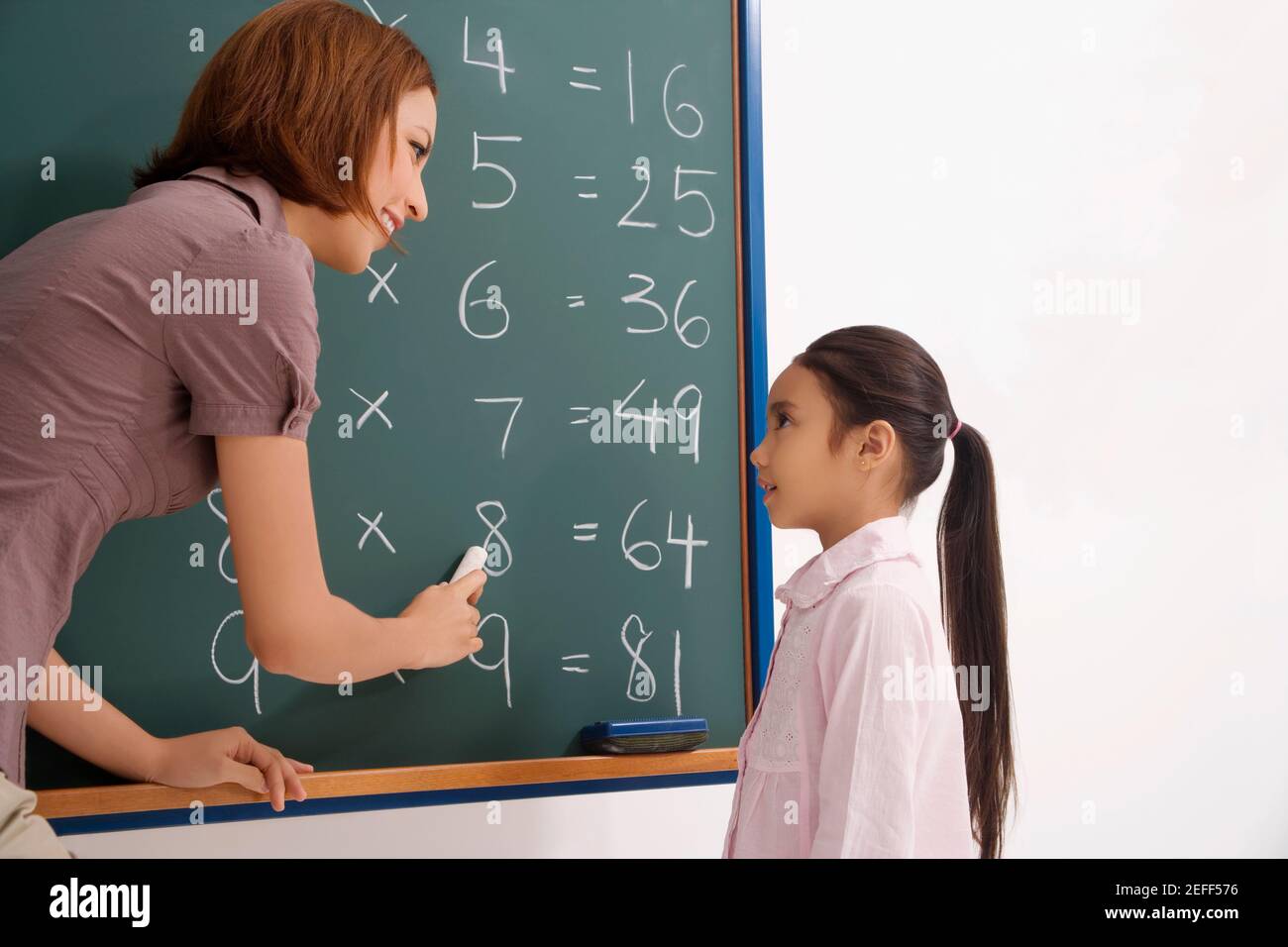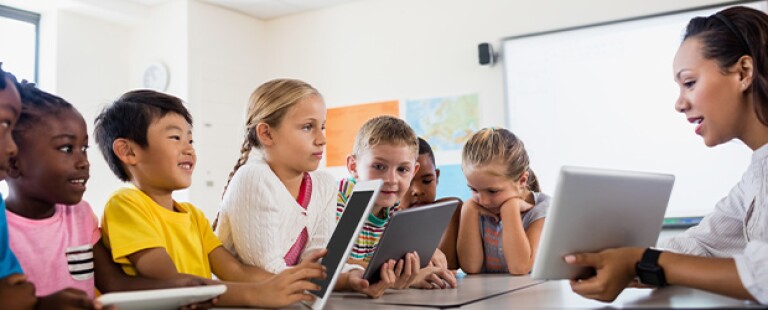Expert Tutors Offering Primary Science Tuition Singapore for All Grades
Expert Tutors Offering Primary Science Tuition Singapore for All Grades
Blog Article
Checking Out the Various Mentor Strategies in Primary Scientific Research Education Today
The landscape of key science education and learning is developing, with numerous mentor strategies getting prominence in modern class. Inquiry-based knowing, hands-on experiments, and the assimilation of innovation are redefining exactly how instructors engage young minds. Additionally, joint strategies and differentiated guideline are being utilized to cater to the diverse needs of trainees, improving both involvement and understanding. As we take a look at these approaches, inquiries occur concerning their effectiveness and the ramifications for future academic methods. What might these changes in technique mean for the future generation of students?
Inquiry-Based Discovering
Inquiry-Based Discovering (IBL) is an instructional strategy that encourages pupils to discover scientific ideas through doubting, examination, and hands-on testing. This approach highlights the duty of students as active individuals in their discovering, advertising crucial thinking and analytical abilities. By involving with real-world questions, students end up being inspired and interested, which boosts their understanding of scientific principles.
In IBL, educators work as facilitators, assisting trainees as they browse their queries as opposed to delivering info straight. This student-centered technique enables for differentiation, fitting numerous learning styles and rates. Students develop skills in developing hypotheses, making experiments, and assessing data, which are crucial for scientific literacy.
Furthermore, IBL fosters collaboration among students, motivating them to share ideas and findings. This cumulative inquiry advertises social skills and a feeling of neighborhood within the classroom. The process of inquiry encourages durability, as trainees discover to welcome failing as a stepping stone towards understanding.
Hands-On Experiments
Hands-on experiments are a vital component of efficient science education, complementing the concepts of inquiry-based knowing. These experiments permit pupils to engage directly with clinical principles, promoting a much deeper understanding via experiential discovering. By adjusting materials and observing end results, young students can realize abstract theories in concrete ways.
Such activities advertise important reasoning and analytical skills, as pupils assume outcomes, conduct experiments, and examine results. This procedure encourages them to ask concerns, refine their understanding, and develop a clinical mindset. Hands-on experiments can be customized to varied learning designs, ensuring that all students have the opportunity to involve meaningfully with the web content.
Moreover, hands-on experiments frequently motivate collaboration amongst peers, promoting synergy and interaction skills. Working in teams enables trainees to share ideas, discuss findings, and gain from one an additional, which improves their overall instructional experience.
Integrating hands-on experiments right into the main science curriculum not just enriches the finding out atmosphere yet additionally grows a long-lasting rate of interest in scientific research. By proactively joining their education, trainees are much more most likely to develop an enthusiasm for clinical query that extends beyond the classroom.

Modern Technology Assimilation
Integrating technology into key science education and learning has actually become significantly important in fostering pupil interaction and boosting learning end results. Using electronic devices, such as interactive simulations, virtual laboratories, and educational software application, offers students with chances to check out clinical principles in cutting-edge ways. These resources promote a much deeper understanding of intricate topics by enabling students to visualize and control variables that would be unwise in a typical classroom setting.
In addition, innovation integration motivates customized learning experiences. Pupils can progress at their very own speed, reviewing challenging principles through multimedia that site sources, which deal with various knowing styles. This adaptability not only supports private development however additionally cultivates a sense of freedom in students.
Additionally, innovation acts as a bridge to real-world scientific research, connecting students with present research and professional contributions. Accessibility to clinical journals and online databases broadens students' viewpoints on clinical questions and promotes crucial thinking abilities.
Collaborative Understanding
Joint learning plays a crucial function in main science education and learning by promoting teamwork and interaction skills among trainees. This strategy urges students to interact, share understanding, and engage in analytical, which boosts their additional info understanding of clinical concepts. By joining team activities, trainees learn to articulate their concepts, listen to varied point of views, and negotiate options, every one of which are crucial skills in both real-world and scholastic contexts.

Study shows that collective understanding can lead to enhanced inspiration and engagement in science topics, as trainees locate enjoyment in common experiences (primary science tuition Singapore). In addition, this method prepares students for future joint undertakings, equipping them with the abilities needed for effective synergy in greater education and learning and expert settings. Inevitably, welcoming collective understanding in primary scientific research education and learning can substantially enhance the knowing experience and promote a deeper understanding of clinical questions
Differentiated Guideline

Distinguished instruction can materialize in numerous methods, such as varying the material, procedures, or items of understanding. Teachers might make use of tiered tasks that offer varying degrees of complexity, allowing trainees to work at their particular readiness degrees. Furthermore, adaptable grouping techniques can promote collaboration among trainees with various capacities, promoting peer knowing.
Evaluation plays an essential function in this strategy, as it informs direction and assists instructors comprehend each student's special requirements. Formative analyses, such as monitorings and quizzes, can direct educators in adjusting their methods to improve finding out end results. primary science tuition Singapore. Eventually, by carrying out separated guideline in primary science education, educators can cultivate a much more fair and efficient learning environment, encouraging try this web-site all pupils to reach their complete capacity in recognizing clinical sensations
Conclusion
In recap, the diverse teaching strategies in main scientific research education and learning, including inquiry-based understanding, hands-on experiments, technology assimilation, collaborative discovering, and separated guideline, collectively add to a more efficient discovering environment. These approaches advertise critical reasoning, analytical skills, and a much deeper understanding of scientific ideas. By implementing these methods, educators can create interesting and encouraging class that attend to the different needs of trainees, ultimately cultivating a long-lasting interest in scientific research and boosting scholastic achievement.
Inquiry-Based Learning (IBL) is an instructional technique that encourages pupils to check out scientific principles with wondering about, examination, and hands-on trial and error.Collective learning plays a vital role in primary science education and learning by cultivating synergy and interaction abilities among students.Research study suggests that collaborative learning can lead to enhanced motivation and interaction in science subjects, as students locate enjoyment in common experiences.In cultivating a comprehensive understanding environment, distinguished instruction emerges as a key method to accommodate the varied requirements and abilities of students in main scientific research education. Inevitably, by implementing differentiated guideline in key science education and learning, teachers can cultivate a much more equitable and efficient understanding atmosphere, empowering all trainees to reach their full potential in comprehending scientific phenomena.
Report this page